- Home
- James Rollins
War Hawk: A Tucker Wayne Novel Page 11
War Hawk: A Tucker Wayne Novel Read online
Page 11
“Above my pay grade, I’m afraid. All I could discover without raising alarms is that the group is mostly made up of mathematicians and statisticians. They operate out of a newly constructed housing unit in a remote corner of Redstone. It’s all segregated with access controlled by MPs. As far as I can tell, the group mostly lives there.”
“You said they were quasi-private. What did you mean by that?”
“To operate at Redstone, they surely have the base commander’s approval and support, but as I understand it, Odisha operates independently. They’re run by a private company.”
“Which one?”
Frank shrugged again. “That’ll take some more digging. Perhaps if I knew more details . . .”
Tucker hesitated, then decided he was putting Frank more at risk by withholding information. “I think it’s high time I gave you the rest of the story about Sandy’s disappearance.”
Frank leaned forward. “Do tell.”
Tucker started with the intruders he ran into at Sandy’s house and ended with his discovery of her storage locker. “Whoever chased us through the swamps may be the same pair that showed up at Sandy’s place. At least I’m pretty sure one of the men was.”
That guy named Webster . . .
Frank interrupted his story. “Back up, you said you got the license plate number off the men’s Suburban at Conlon’s house.”
Tucker nodded.
“Good. Give that to me before I leave. If that vehicle ever passed through one of the gates at Redstone, there’ll be a record of it. It might be a good place to start.” Frank waved to him. “Go on. What else happened?”
Tucker continued with his story, filling in more details about the nature of the drone that had hunted him and Kane.
With a pizza slice halfway to his mouth, Frank blinked several times and blew out a breath. “Whoa,” he murmured. “I’ve got like a few hundred questions.”
Tucker smiled. “I thought you might.”
“First, let me see that sniper round you dug out of the tree trunk and the guidance pod you found floating in the water.”
Tucker walked over to his pack, retrieved the objects, and passed them over.
Frank remained silent for a full minute while he examined both. “Definitely the assembly for a PGB, a precision guided bullet. But this is beyond anything I’ve seen. I’ll do my best to pick it apart later at my place.” His gaze returned to Tucker. “As for the attack drone, how was the accuracy of its targeting systems?”
“Good, but not perfect. A lot of near misses. Why?”
“Did it seem to get better over time?”
Tucker thought back, then slowly nodded. “Now that you mention it. I thought maybe it was because I was slowing down, but you may be right.”
“Hmm . . .”
“What?”
“From the level of engine muffling you described, along with stealth camouflaging, we’re talking about a next-gen level of drone technology. If that’s the case, one of the engineering facets currently under investigation—where the most money is being funneled at the moment—concerns building drones that can not only operate autonomously but learn on the fly.”
Tucker felt a sinking in the pit of his stomach. “You think that’s what we encountered out there? Some new prototype?”
“I do. But the question remains, how autonomous was that damned thing? Can it be given a whole mission profile and execute it?”
“As in, fire and forget?”
“Or even worse. With current tech, drones can already zero in and target various features of an enemy: visual identities, electronic emissions, travel routes, that sort of thing. But the next-gen drones will likely be programmed to make independent judgments upon what they find out there.”
“Including shoot to kill.”
Frank nodded. “Removing humans from the equation. To save the lives of boots on the ground, there has been growing pressure to give such robotic warriors greater autonomy and decision-making capability.”
Tucker swallowed, trying to imagine that future war.
Or maybe I don’t have to imagine it.
The buzzing of the drone’s engines filled his head.
Frank continued. “Both military designers and independent programmers are racing toward that goal. It’s a gold rush out there right now. Even Blackwater, the private military firm, added an unmanned division to its business model back in 2007, opening the door for robotic mercenaries, autonomous drones operating beyond the stricture of military command.”
Frank must have noted Tucker growing paler, but the man apparently wasn’t done. “One more thing. Whoever engineered that drone, you can bet it wasn’t their only model. Drones come in all shapes and sizes, built for various purposes, designed to travel through the air, across the ground, or even underwater.”
Tucker took these words of caution to heart.
Frank sat back and smiled. “So what do you think?”
“About what?” Tucker forced out.
“Do I have the position? Can I stay onboard with you and Kane? I told you I could be of use to you.”
Tucker didn’t hesitate. “You’re hired.”
Frank’s grin broadened. “What do you want me to do first?”
“Look into the Suburban’s license plate and see what you can find—but be careful.”
Frank nodded. “What are you going to do?”
Tucker pictured Frank’s description of where Sandy’s mother lived. “I’m going to buy myself a banjo.”
11
October 15, 10:14 A.M. CDT
Appalachian Mountains, Alabama
Maybe I should’ve bought that banjo after all . . .
As Tucker headed east into the mountains, the signs of traditional civilization began to fade. Once off Highway 35 and onto the back roads, the way quickly grew more potholed, the homes more scattered, diminishing into simple cabins. He filled up at a gas station with a rusted pump that looked like it dated from the fifties. As he passed along, children stopped playing in yards and stared at him, the girls in faded dresses, the boys in baggy shorts. Tucker waved to one man on a porch, who simply narrowed his eyes.
Tucker felt as though he had slipped backward into the depression era.
“Kane, I say we cross this place off for our next canoe trip.”
The shepherd wagged his tail. Unsurprisingly, Kane remained fixated on the rural scenery, occasionally whining as he saw kids running and laughing, plainly disappointed he was missing out on all the fun.
Eventually the terrain steepened, and the slopes grew heavily wooded with oaks, the foliage already a riot of fall golds and reds.
Tucker slowed as he watched for the occasional road sign, following the directions Frank had given him. Sandy’s mother—Beatrice Conlon—lived some thirty-five miles deeper into the mountains, outside a hamlet called Poplar Grove.
He passed farmhouse after farmhouse, all of them made of clapboard and seemingly held together by layers of peeling white paint. He came upon the occasional church, usually a small saltbox affair with a truncated steeple. After another forty minutes of driving, Tucker finally reached Poplar Grove. The town was little more than a four-way stop, with a hardware store, a diner, a grocer, and a gas station.
“What?” he mumbled as he braked at the intersection. “No Starbucks?”
He continued forward at a snail’s pace until he spotted a faded sign for Davis Road and turned left. After another half mile, the road’s blacktop ended, becoming a dirt-and-gravel tract. He followed to where it dead-ended.
Ahead, past a fencerow and a field of weeds, sat a trim yellow farmhouse with a wraparound porch. A mailbox at the edge of the drive read CONLON.
Tucker patted Kane’s side. “Looks like we’re home.”
As he exited, Kane hopped out next to him, sniffing all around. Tucker shielded his eyes and studied the farmhouse. Aside from the chirping of crickets, it was perfectly quiet.
Frank had warned him this was shoot-first
country when it came to trespassing.
Hopefully we’ll at least get a warning shot.
Tucker cupped his hands around his mouth. “Anybody home?” he shouted.
There was no answer. He tried again, but still got no response.
He headed toward the driveway, which was little more than two ruts through the weeds. Before he could set foot past the fencerow, a female voice yelled at him, “Whatya want?”
Tucker stopped and motioned for Kane to stick beside him. A figure stepped out of the porch’s deeper shadows.
“Ms. Conlon?” Tucker called out.
“Who’s asking?”
“My name is Tucker. I tried calling but—”
“Get on outta here. I’m not buying what you’re selling, mister.” She began to fade back into the shadows.
“No, wait! I’m a friend of Jane Sabatello’s. She asked me to come down to check on—”
The woman moved to the porch rail. “You lookin’ for my Sandy?”
“Yes, ma’am.”
“Find her yet?”
“No, ma’am.”
“Then whatcha here for?”
“If I can learn a bit more about your daughter, it might help me find her.”
After ten long seconds, she finally waved an arm. “Okay, then. Come on over.”
So much for the warm welcome.
Tucker crossed up the driveway toward some side steps that led up to the porch. The closer he got, the more he appreciated the quaint farmhouse. Despite its age, it looked well maintained. The same couldn’t be said for the yard. By the time he reached the porch, Kane’s fur was covered in thistles and burrs.
“Name’s Bea,” the woman said and nodded to Kane. “There’s a burr brush near the door. Get ’im cleaned up before he comes in.”
She stepped through the screen door and let it clap shut behind her.
Tucker grabbed the brush and spent a few minutes dethistling both Kane’s fur and his own pant legs. Once done, he pulled open the screen door and entered a small living room. The carpet was cream colored, perfectly clean, as was the furniture. A pair of Tiffany-style lamps sat on oak tables to either side of a couch. A wall-mounted television faced the seating area. There was also a prominent crucifix above the screen, and on the table, a rosewood framed photo of the beatific smiling face of Jesus Christ.
“Shut the door, will ya?” Bea called from the kitchen at the back of the house. “Got the AC going.”
“Sure.”
“You like lemonade?”
“Yes, ma’am. Thanks.”
Bea joined him carrying both a bowl and a tray containing two glasses and a pitcher. The woman was in her midfifties, trim and tan, her graying blond hair tucked into a loose bun. She wore khaki pants, work boots, and a plaid long-sleeved shirt.
She placed a bowl of water before Kane. “Belgian shepherd?”
Tucker smiled. “Most people think he’s a German shepherd. I think it’s his accent.”
His attempt at humor fell on deaf ears.
“I watch a lot of dog shows,” she said. “Westminster and such. He’s handsome. And smart, too, I’ll bet.”
Tucker’s smile grew larger, prouder. “He is that.”
She waved him to a recliner next to the sofa, then poured him a glass of lemonade. “Sorry about the unfriendliness out there. Kinda bred into us, I guess.”
“No problem. I’ve learned over the years that a healthy suspicion of strangers is often warranted.” He patted Kane’s side as the shepherd settled next to him. “Give me a dog over a person any day of the week.”
Bea offered a small smile as she sank down to the sofa, but he also noted the knot of worry between her eyes. “So you were a friend of Sandy’s?” she asked.
“We knew each other at Fort Benning, but I haven’t talked to her in years. It was Jane who called me. Thought I could help.”
Bea nodded. “Jane’s a good girl.” That knot grew tighter as the woman’s gaze returned to Tucker. “Do you think you can help find Sandy?”
“I’m going to try.”
“I believe you, but I’m worried. She always calls. No more than a few days goes by without her phoning me. Plus she was acting oddly for the past couple months.”
“How so?”
The woman rubbed her palms together, plainly worried. “She’s been kinda drawn into herself, which ain’t like her. Sandy’s always been a pip. And the last time she was up here, about three weeks ago, she asked if anybody’d been up here asking about her.”
“Had there been?”
“Not here. And if anyone had been in town, I woulda heard about it.”
He leaned back, trying to get a complete picture of Sandy’s life. “Do you know what she was doing at Redstone, what project she was working on?”
Bea shook her head. “Secret stuff, I’m sure. She never said, and I knew better than to ask. I assumed it was related to computers, math, and such. She was always a smart kid.”
Tucker nodded. “Did she ever mention any names, any friends she worked with?”
“Only one. A gal named Nora Frakes. Sandy liked her. She even brought her to dinner here a few times. Nice gal. A little saucy, but nice all the same.”
Tucker heard a flutter in the woman’s voice, a flicker of unease in her eyes as she glanced toward a window. Nora Frakes was likely closer than a friend to Sandy, but Bea wasn’t about to admit that to a relative stranger in her house.
Tucker decided to switch the subject to safer ground. “Tell me about Sandy. How did she get interested in math and computers?”
Bea’s smile reappeared. “Like I said, she was a smart kid. But elementary school didn’t spark her. Neither did middle school. But when she hit ninth grade she had a math teacher who took a shine to her. Next thing you know, she’s doing algebra, calculus, trigonometry, computer science. It was like she just bloomed—honor roll, valedictorian, got a full scholarship to MIT from the air force, which she joined after she graduated.”
“It sounds like she certainly found her niche.”
“You could say that. If not for that math teacher, she’d probably be waitressing with a baby on her hip. Instead, she spent six years with the air force. When she got out, she did some stuff in Washington—I think with Jane.”
Tucker nodded, remembering Jane telling him that the two women had worked alongside each other in DC.
“Then Sandy found this job at Redstone,” Bea continued. “I think mainly to be close to me. It’s been heaven having her around.”
“And the last time you saw her was a little over three weeks ago.”
“That’s right.”
Tucker read some vacillation in the woman, some hesitation or reluctance about that last visit.
She’s not telling me something.
He remembered Frank’s comment about these mountain folks keeping their secrets, about their innate distrust of outsiders. He needed to break through that wall.
While reaching into his pocket, Tucker quietly signaled Kane.
MAKE FRIENDS.
Kane rose and crossed over to the sofa and rested his chin beside Bea’s left knee. She smiled down and gave him a scratch behind the ear, which set Kane’s tail to swishing more vigorously, eventually involving his whole hindquarters. Tucker knew Kane wasn’t playacting. Tucker could read the shepherd’s body language like a book. The shepherd instinctively liked Bea, who from her fixation with dog shows clearly returned that affection.
She patted the couch cushion.
Kane jumped up and curled into a ball next to her.
“He’s a delight,” she murmured.
“And he has good sense about people.” Tucker leaned forward and slipped over the photograph that Jane had given him. It showed the three of them arm in arm, grinning like fools. “So did Sandy.”
Bea took the photo and ran a finger over her daughter’s features. “She was so much younger here.”
Tucker matched her sad smile. “We all were. Even my dog, Kane, there.
”
Bea squinted at the pair of war dogs squatted at their feet in the photo. “That’s Kane?”
“When he was—”
Bea sat up straighter, staring at Tucker with wider eyes. “You’re the soldier with the two dogs.”
Tucker was taken aback by her reaction.
“I remember Sandy telling me about you, but I must’ve forgotten your name. Still, I remember Sandy’s stories. About you, about Kane, and the other dog . . .”
“Abel,” Tucker said, his voice cracking.
Kane lifted his head at the mention of his littermate’s name. A small whine escaped him. Bea’s hand dropped to reassure the dog.
“That’s right. Kane and Abel.” She glanced over to the crucifix above the television. “Like from the Bible.”
He nodded, momentarily unable to talk.
She reached out and touched his knee. “I know what you lost. Sandy told me about that, too. I’m so sorry.”
Tucker swallowed, struggling not to let those dark memories overwhelm him.
Have to stay on point here.
“Th . . . thank you,” he mumbled, then cleared his throat. “Listen, Ms. Conlon—”
“Please just call me Bea.”
He nodded. “Bea, if there was anything Sandy might have left here, something that might point to what happened to her or what she was working on, I need to know.”
Bea didn’t hesitate. She simply stood up and said, “Wait here.”
She disappeared up a set of stairs and returned a minute later. She held out a USB flash drive. It was stainless steel and about the size of Tucker’s thumb—larger than most he’d seen. There was no label or markings of any kind.
“Sandy said if anything ever happened to her that I was to give it to someone I trusted.” She handed it to Tucker. “My daughter loved you all. I could tell whenever she talked about you.”
Tucker accepted the drive, momentarily speechless.
Bea continued. “Sandy also said to warn whoever I gave this to that her coworkers could be in danger, too.”
Her coworkers? That had to be the other members of The Odisha Group.
“Even with that big brain of hers, Sandy always had a bigger heart,” Bea said. “She’d step in front of a train to rescue a puppy. Whatever got her into trouble, I don’t think she ever wanted to put her friends at risk.”

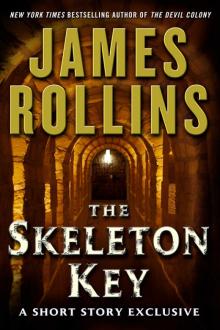 The Skeleton Key
The Skeleton Key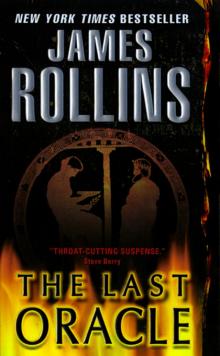 The Last Oracle
The Last Oracle The Judas Strain
The Judas Strain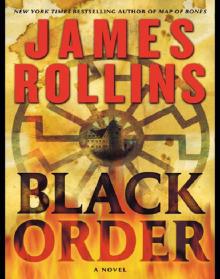 Black Order
Black Order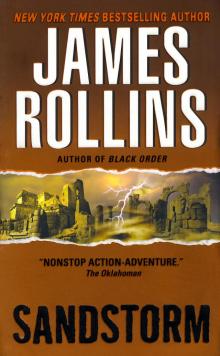 Sandstorm
Sandstorm Ghost Ship
Ghost Ship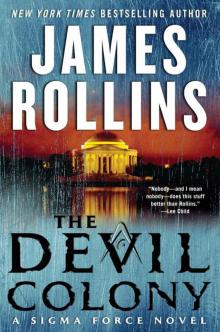 The Devil Colony
The Devil Colony Subterranean
Subterranean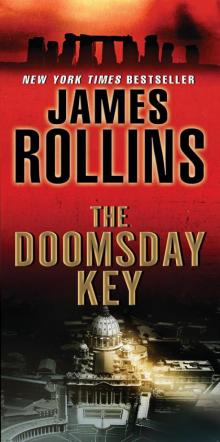 The Doomsday Key
The Doomsday Key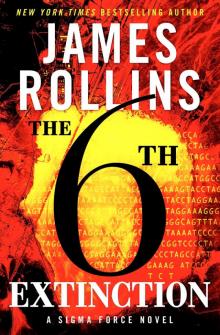 The 6th Extinction
The 6th Extinction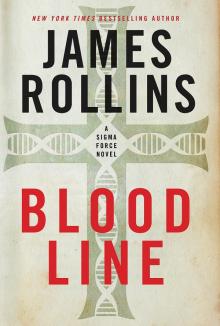 Bloodline
Bloodline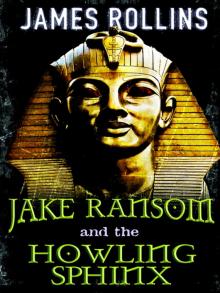 Jake Ransom and the Howling Sphinx
Jake Ransom and the Howling Sphinx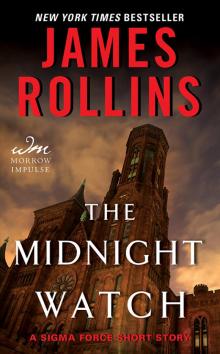 The Midnight Watch
The Midnight Watch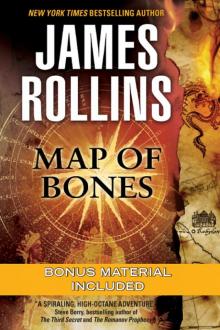 Map of Bones
Map of Bones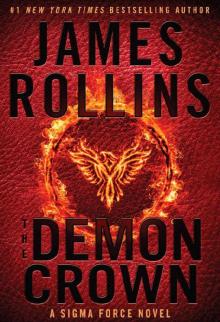 The Demon Crown
The Demon Crown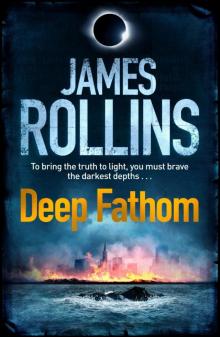 Deep Fathom
Deep Fathom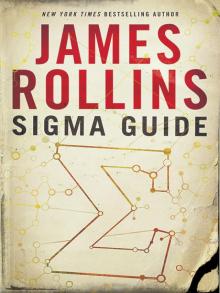 Sigma Guide
Sigma Guide Kowalski's in Love
Kowalski's in Love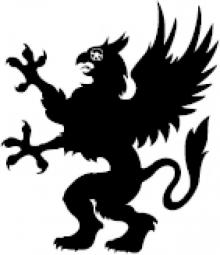 Jake Ransom and the Skull King's Shadow
Jake Ransom and the Skull King's Shadow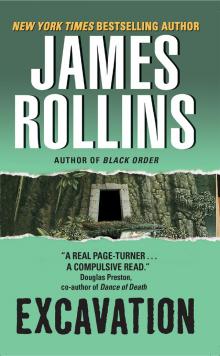 Excavation
Excavation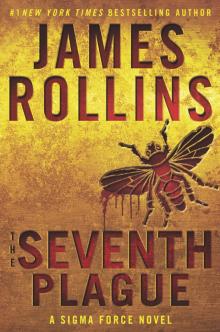 The Seventh Plague
The Seventh Plague Altar of Eden
Altar of Eden Unrestricted Access: New and Classic Short Fiction
Unrestricted Access: New and Classic Short Fiction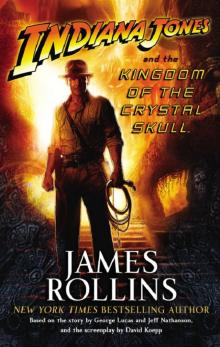 Indiana Jones and the Kingdom of the Crystal Skull
Indiana Jones and the Kingdom of the Crystal Skull Crucible
Crucible The Eye of God
The Eye of God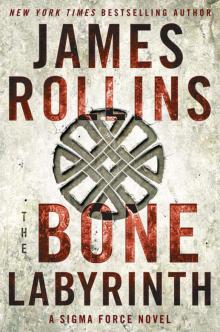 The Bone Labyrinth
The Bone Labyrinth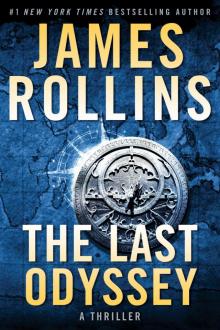 The Last Odyssey: A Thriller
The Last Odyssey: A Thriller Unrestricted Access
Unrestricted Access Amazonia
Amazonia Blood Brothers: A Short Story Exclusive
Blood Brothers: A Short Story Exclusive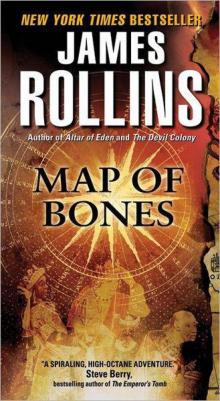 Map of Bones: A Sigma Force Novel
Map of Bones: A Sigma Force Novel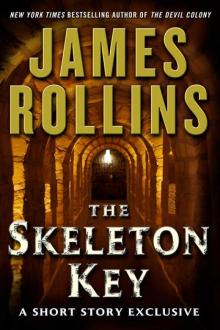 The Skeleton Key (sigma force)
The Skeleton Key (sigma force)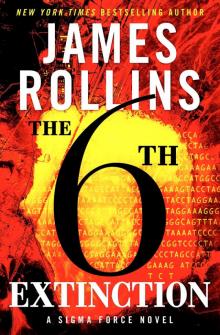 Sigma Force 10 - The Sixth Extinction
Sigma Force 10 - The Sixth Extinction Innocent Blood
Innocent Blood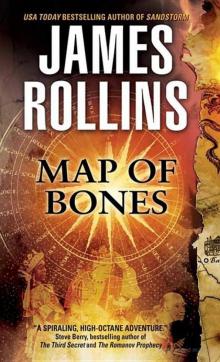 Map of Bones sf-2
Map of Bones sf-2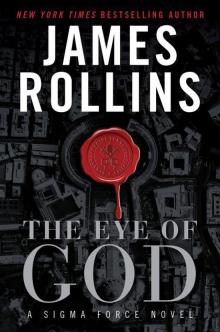 The Eye of God: A Sigma Force Novel
The Eye of God: A Sigma Force Novel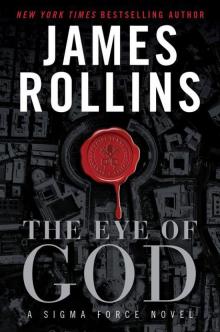 The Eye of God: A Sigma Force Novel sf-9
The Eye of God: A Sigma Force Novel sf-9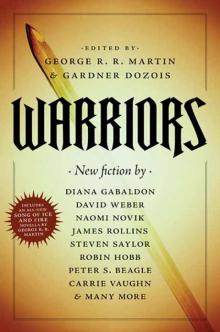 The Pit
The Pit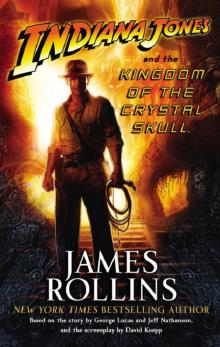 Indiana Jones and the The Kingdom Of The Crystal Skull
Indiana Jones and the The Kingdom Of The Crystal Skull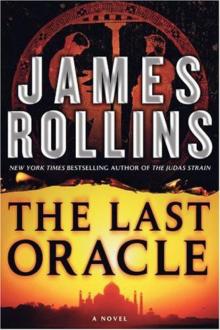 The Last Oracle (2008) sf-5
The Last Oracle (2008) sf-5 City of Screams
City of Screams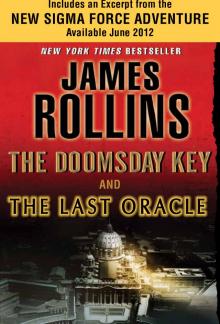 The Doomsday Key and The Last Oracle with Bonus Excerpts
The Doomsday Key and The Last Oracle with Bonus Excerpts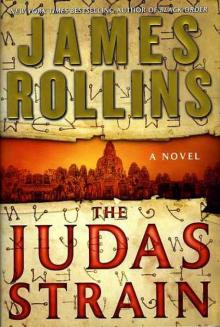 The Judas Strain sf-4
The Judas Strain sf-4 Blood Infernal
Blood Infernal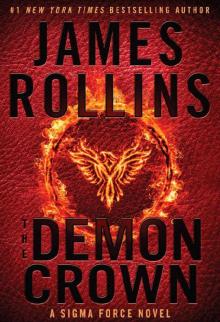 The Demon Crown: A Sigma Force Novel
The Demon Crown: A Sigma Force Novel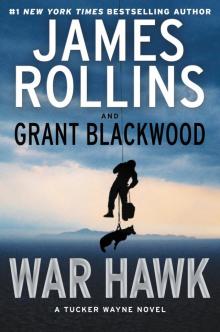 War Hawk: A Tucker Wayne Novel
War Hawk: A Tucker Wayne Novel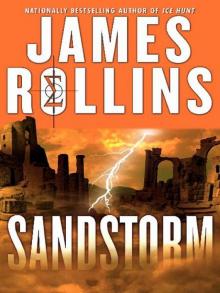 SANDSTORM sf-1
SANDSTORM sf-1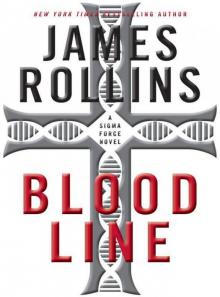 Bloodline: A Sigma Force Novel
Bloodline: A Sigma Force Novel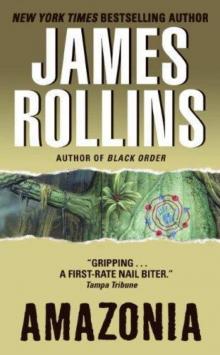 Amazonia: a novel
Amazonia: a novel The Last Oracle: A Sigma Force Novel
The Last Oracle: A Sigma Force Novel City of Screams (the order of the sanguines)
City of Screams (the order of the sanguines) Ghost Ship: A Sigma Force Short Story
Ghost Ship: A Sigma Force Short Story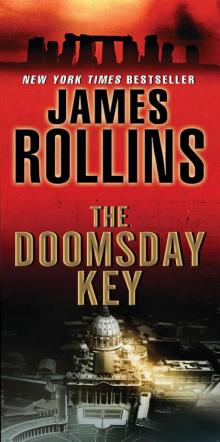 The Doomsday Key: A Sigma Force Novel
The Doomsday Key: A Sigma Force Novel